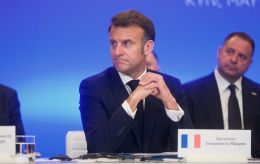A month without Russia: What's happening with the grain deal
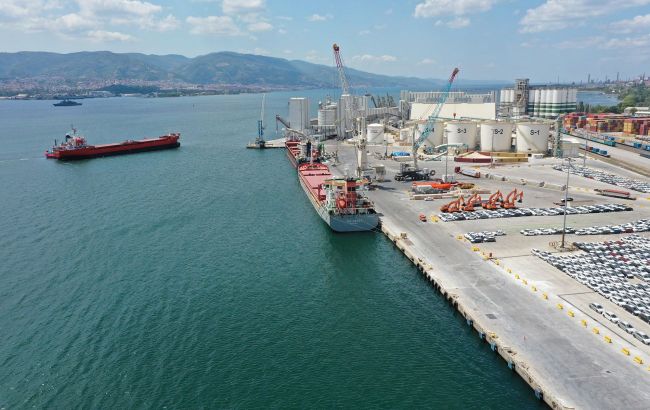 Photo: Grain deal paralyzed due to Russia's move (Getty Images)
Photo: Grain deal paralyzed due to Russia's move (Getty Images)
Russia exited a grain deal a month ago and initiated another escalation spiral. However, following strikes on port infrastructure, Ukraine bared its teeth, executing Plan B and undermining Russian dominance in the Black Sea.
Details about the grain deal's functionality, Russia's exit motives, and emerging alternative routes for agricultural exports are covered in the RBC-Ukraine report.
How the grain deal worked
Since the start of the full-scale invasion in February 2022, Russia had blocked Ukrainian ports on the Black Sea. This led to a complete halt in maritime exports, which constituted a significant portion of grain shipments. According to UN estimates, as of July 2022, more than 20 million tons of grains had accumulated in the port of Odesa alone.
Alternative capacities were critically lacking. For instance, in May of the previous year, only 1.8 million tons of agricultural products were transported via land routes and river ports.
Ukraine is a major grain supplier, having sold approximately 50 million tons in 2021. Issues with maritime exports resulted in a more than 20% increase in global prices and posed a threat of famine in several countries, particularly in North and East Africa.
The grain deal was concluded in July 2022 with the mediation of Türkiye and the UN. Notably, Ukraine and Russia did not sign any bilateral documents. Both countries negotiated separately with the intermediaries.
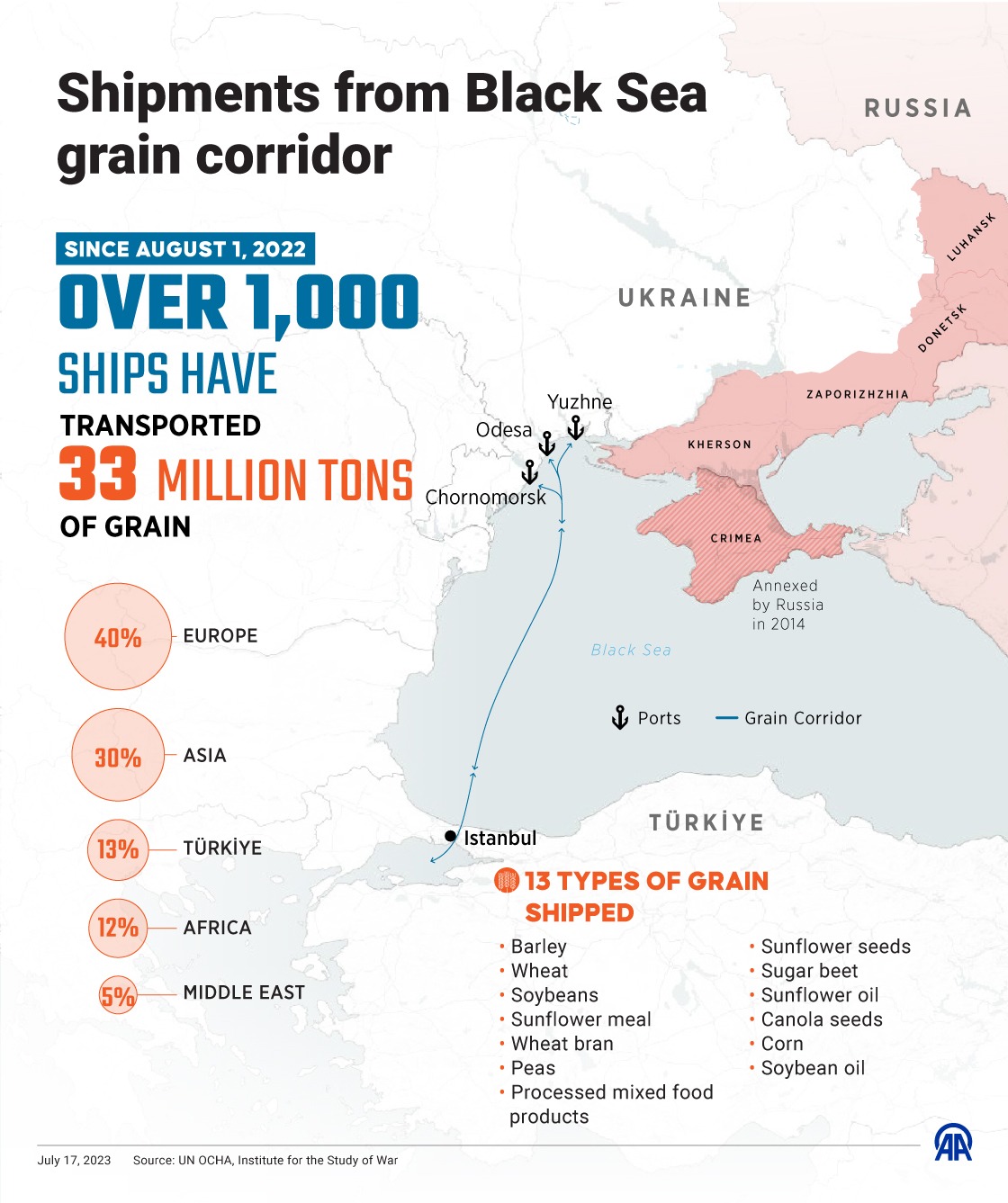 Photo: Diagram of the grain corridor through the Black Sea (infographic by Anadolu Agency)
Photo: Diagram of the grain corridor through the Black Sea (infographic by Anadolu Agency)
The first ship carrying Ukrainian grain set sail on a secure route from the port of Odesa on August 1st. And for nearly a year, the export structure was rather straightforward:
- 50% of the grain through deep-water ports of the grain deal - Odesa, Chornomorsk, and Yuzhne
- 25% through ports on the Danube - Reni and Izmail
- 25% through western borders with subsequent transit to EU ports
The grain corridor, spanning 310 nautical miles in length and 3 miles in width, extended from the ports of Odesa, Chornomorsk, and Yuzhne to Istanbul, Türkiye. Approximately 33 million tons of products were shipped along this route during the deal's duration.
Ships with grain were inspected by inspectors from the Joint Coordination Center in Istanbul, involving representatives from Ukraine, Russia, Türkiye, and the UN. The Ukrainian side repeatedly accused Russian inspectors of delaying checks, leading to long queues and delivery delays. They also insisted on expanding the deal to include other ports - Mykolaiv and Olbia.
Initially, the agreement was set for 120 days, later extended for the same period, and twice for 60 days. In October 2022, following strikes on military ships, Russia temporarily suspended its participation. However, with the support of Türkiye and the UN, exports continued, and Moscow returned to the deal after a few days.
The final exit from the Black Sea Grain Initiative came on July 17, 2023.]
Why Russia exited the deal
From the outset, the Russian side had hinted at the possibility of terminating the deal, almost immediately after its commencement. As per the terms agreed upon with the United Nations, the organization was slated to assist in Russian exports, including the unblocking of the export of ammonia fertilizers – a crucial export for Moscow to Western markets.
Prior to the full-scale war, approximately 70% of Russia's ammonia exports relied on the Tolyatti-Odesa pipeline. However, with the onset of hostilities, Ukraine blocked and refused to reinstate its operations, despite UN appeals. Last autumn, President Volodymyr Zelenskyy acknowledged the potential revival of the pipeline if both sides engaged in a prisoner exchange following the "all for all" formula.
In April, Russian threats grew more pronounced. The Ministry of Foreign Affairs presented five pivotal demands for the extension of the deal, including partial sanctions relief:
- Inclusion of Rosselkhozbank in the SWIFT payment system.
- Resumption of supplies of agricultural machinery, spare parts, and servicing.
- Lifting restrictions on insuring and reinsuring ships carrying Russian grain, as well as revoking the ban on entry of Russian vessels into EU ports.
- Restarting the operation of the Tolyatti-Odesa ammonia pipeline.
- Thawing frozen assets and accounts of Russian companies associated with food and fertilizer production and delivery.
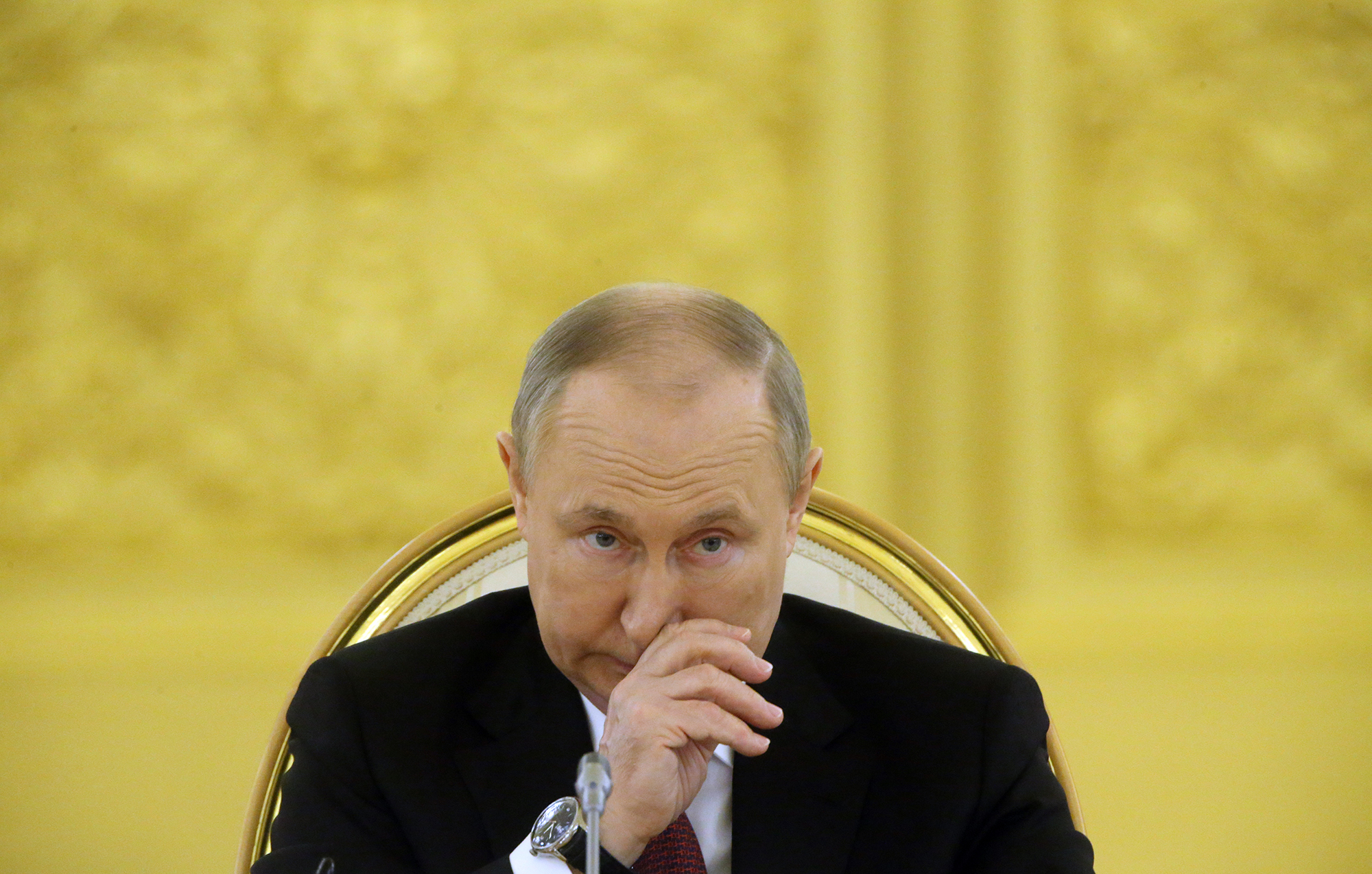
Photo: President of Russia, Vladimir Putin, demands sanctions' removal in exchange for grain deal resumption (Getty Images)
According to Reuters, in May, Ukraine reportedly expressed readiness to unblock the Tolyatti-Odesa pipeline in exchange for an expansion of the grain deal to other ports. Ultimately, on the 17th, the agreement was extended by 60 days, until July 17.
Just days before the deadline, UN Secretary-General António Guterres proposed that Russia remain in the agreement in exchange for Rosselkhozbank's integration into SWIFT. However, amid a fresh attack on the Crimean Bridge, Moscow declined to prolong its involvement.
On July 18, Russia officially exited the deal, withdrawing its inspectors from the Joint Center in Istanbul and revoking security assurances for civilian vessels in the Black Sea.
Following this move, systematic strikes resumed on the ports and grain infrastructure of southern Ukraine. Specifically, on the night of July 19, combined attacks hit the ports of Odesa and Chornomorsk, followed by strikes on Danube ports in Reni and Izmail. Dmitry Polyanskiy, Russia's representative to the UN, cynically attributed the missile and drone strikes to alleged weapon storage at the ports.
Simultaneously, Russian President Vladimir Putin reiterated that Russia would return to the deal once all aforementioned conditions were met. He asserted that the Black Sea initiative had "lost all sense," as Russia was prepared to replace Ukrainian grain on the global market.
Ukrainian President Volodymyr Zelenskyy criticized the weak global response to the agreement's collapse, stating, "He (Putin - Ed.) is indeed an unpredictable individual. His circle, earning significant profits from such blockades (like the grain corridor), is highly pragmatic. They thrive on this situation, profiting immensely during wartime," highlighting the economic motives behind the rupture of the deal.
Escalation at sea: Exchange of threats and real incidents
Just days after withdrawing from the agreement, the Russian Ministry of Defense has declared that ships en route to Ukrainian ports will be considered 'potential carriers of military cargo.' Consequently, countries sending such vessels are seen as involved in the war on Ukraine's side.
In response, Ukraine has implemented reciprocal measures. As of July 21, all ships heading towards Russian and occupied territory ports are now being regarded as transporting military cargo. Additionally, Kyiv has banned navigation in the northeastern part of the Black Sea and the Kerch Strait area. On August 5, a military threat was announced for the ports of Anapa, Novorossiysk, Gelendzhik, Tuapse, Sochi, and Taman.
Prior to this, maritime drones targeted the large landing ship 'Olenegorsky Gornyak' near Novorossiysk and the tanker SIG in the vicinity of the Kerch Strait. Regarding the latter incident, RBC-Ukraine sources confirmed it as a joint operation by the Security Service of Ukraine (SBU) and Naval Forces.
According to British intelligence, these attacks indicate that Ukraine has identified a vulnerability in Russia's Black Sea military logistics. As noted by the Financial Times, the striking of a vessel near Novorossiysk has jeopardized oil export infrastructure for the first time. Reuters reports significant issues for Russia in exporting grain due to the conflict's proximity to its shipping routes. Clearly, Ukraine's military capabilities have grown compared to the previous year.
Another escalation occurred yesterday, August 13, as Russia acted on its threats. Around 06:40 AM in the southwestern part of the Black Sea, the cargo ship Sukru Okan under the Palau flag was intercepted while en route to the port of Izmail. The interception involved gunfire. A helicopter was deployed for inspection, and a Russian team examined the cargo. Subsequently, the ship's destination was changed to the Romanian port of Sulina.
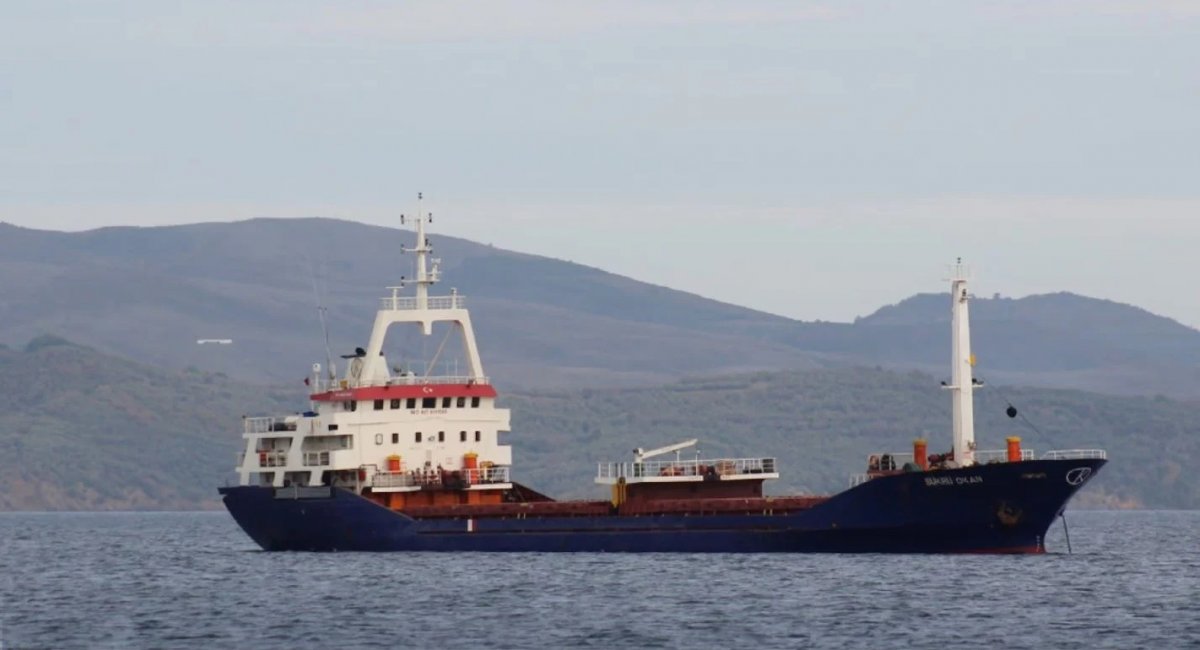
Photo: Russian fleet intercepts the ship Sukru Okan (marinetraffic.com)
According to the Turkish Ministry of Defense, the ship was heading to Romania, and official investigations are ongoing. The Office of the Ukrainian President deemed the armed interception an act of piracy, while Vice Prime Minister and Ukraine's Minister of Community, Territory, and Infrastructure Development Oleksandr Kubrakov urged the UN to strongly react to Russia's actions.
Natalia Humeniuk, Head of the United Coordinating Press Center of Security and Defense Forces of the South of Ukraine, pointed out that apart from Russian sources, no one has officially commented on the civilian ship's interception. Thus, such a show of aggression could be an element of hybrid warfare.
Today, the Ukrainian Ministry of Foreign Affairs issued an official statement.
"The Russian Navy blatantly violated the UN Charter, the UN Convention on the Law of the Sea, and other norms of international law. Such actions serve as another example of Russia's deliberate policy to create threats to navigation freedom and the security of maritime trade in the Black Sea," the statement reads.
The Ministry emphasizes that Russia must be prevented from blocking international routes in the Black Sea.
Ukrainian plan B
In the wake of Russia's withdrawal from the grain deal, Ukraine has proposed to the United Nations and Türkiye the continuation of the agreement in a trilateral format. Ukrainian President Vladimir Zelenskyy stated that the Ukrainian component remains in force and that exerting pressure on Russia is necessary for its implementation.
As an alternative, grain exports could resume under Ukraine's insurance guarantees. Notably, a special fund of 20 billion hryvnias has been established for this purpose. Prime Minister Denys Shmyhal explained that previously, ships heading to the ports of Reni and Izmail were insured using budget funds, and a similar step could be taken within the framework of the Black Sea initiative.
On July 19, Zelenskyy spoke about developing a detailed plan to revive maritime exports. He suggested that military convoys could be used for transportation security. However, according to Bloomberg, the Turkish fleet is unlikely to agree to escort grain ships.
The Guardian first reported on alternative routes on July 19, citing a letter from Ukraine to the United Nations International Maritime Organization. According to the letter, routes through the territorial waters of Romania, closer to the coast, will be temporarily established.
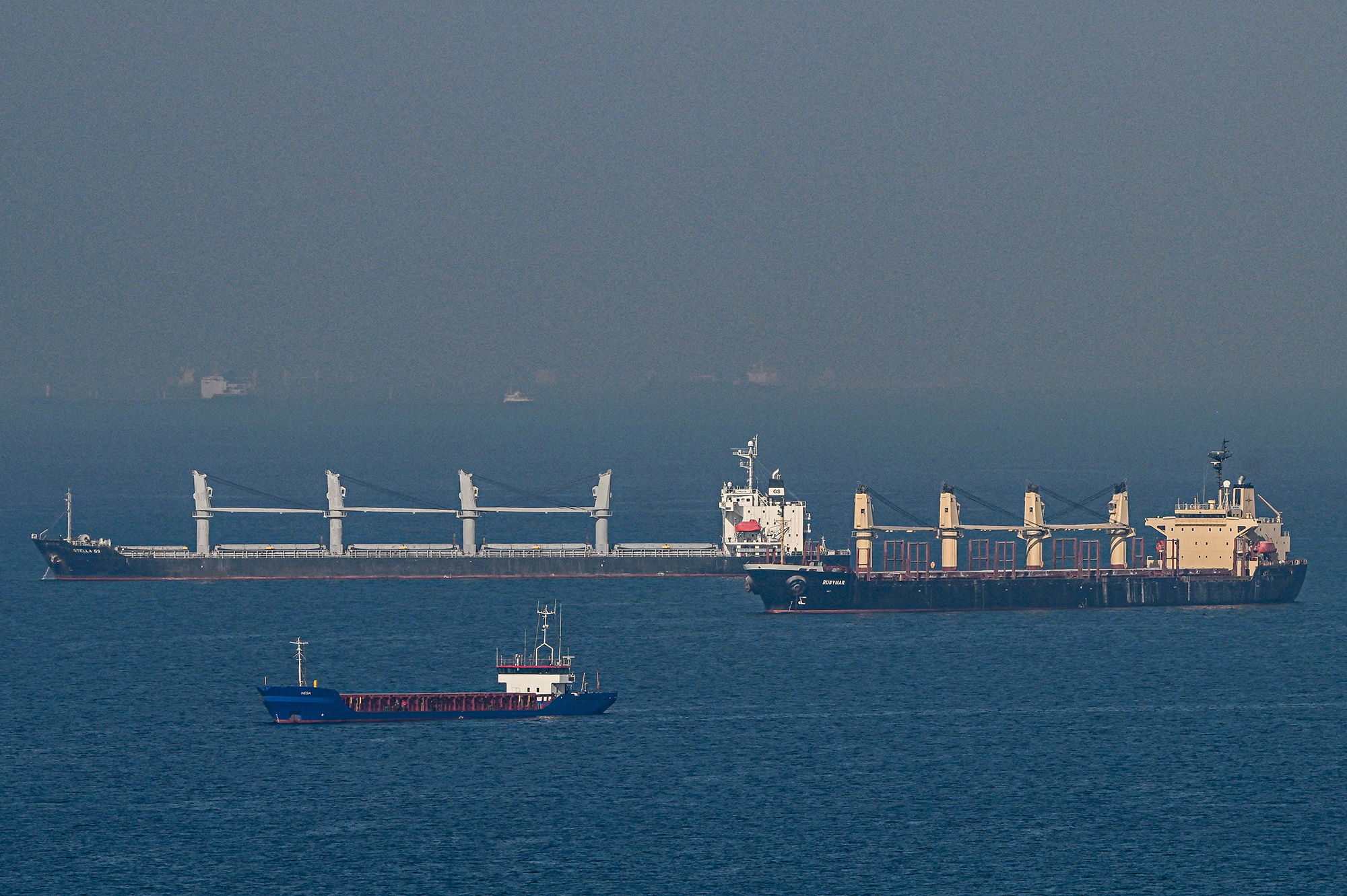
Photo: Ships to navigate closer to the coast of Romania (Getty Images)
Corridors for civilian vessels were opened on August 10 but under certain conditions.
"There remains a military threat and mine danger from the Russian Federation along all routes," stated the Naval Forces.
Initially, the routes are intended for the departure of ships stranded in the ports of Odesa, Chornomorsk, and Yuzhne. Only ships whose owners or captains accept the risk will be allowed passage.
"The corridor will be transparent; we will install cameras on the ships and provide a broadcast to show that this is purely a humanitarian mission without military intent," said Naval Forces spokesperson Oleh Chalyk.
On August 12, it was announced that the registration of trading vessels ready to use the humanitarian corridors had begun. According to Naval Forces representative Dmytro Pletenchuk, the passage of ships will be monitored by Ukrainian military personnel. For security reasons, he did not disclose details about the number of registered ships. He added that the duration of such routes is currently unknown.
Prior to this, Foreign Minister Dmytro Kuleba asserted that Ukraine is prepared to undertake any risks for grain exports. Chief of Military Intelligence Kyrylo Budanov stated that deliveries would continue, whether Russia approves or not. Adviser to the Head of the Presidential Office, Mykhailo Podolyak, suggested that in the event of an attack on civilian ships, the Russian Black Sea Fleet would be annihilated.
It's worth noting that after July 17, civilian navigation in Ukrainian waters has essentially been paralyzed. According to OSINT analysts, the only ship to cross the sea directly and reach Ukraine since that time is the Israeli bulk carrier Ams1. Currently, it is located near Izmail.
Erdogan's Plan
Nonetheless, there is still hope for a full-fledged revival of the grain deal. This hope is linked to the stance of Turkish President Recep Tayyip Erdogan. As early as mid-July, he referred to the deal as historic and pledged to discuss its extension in his August meeting with Putin.
"I believe it wouldn't be an exaggeration to say that President Erdogan is perhaps the only person in the world who can persuade Putin to return to the Black Sea grain initiative... We are aware that Turkish diplomacy is cooperating with the Russian side," Dmitry Kuleba stated recently.
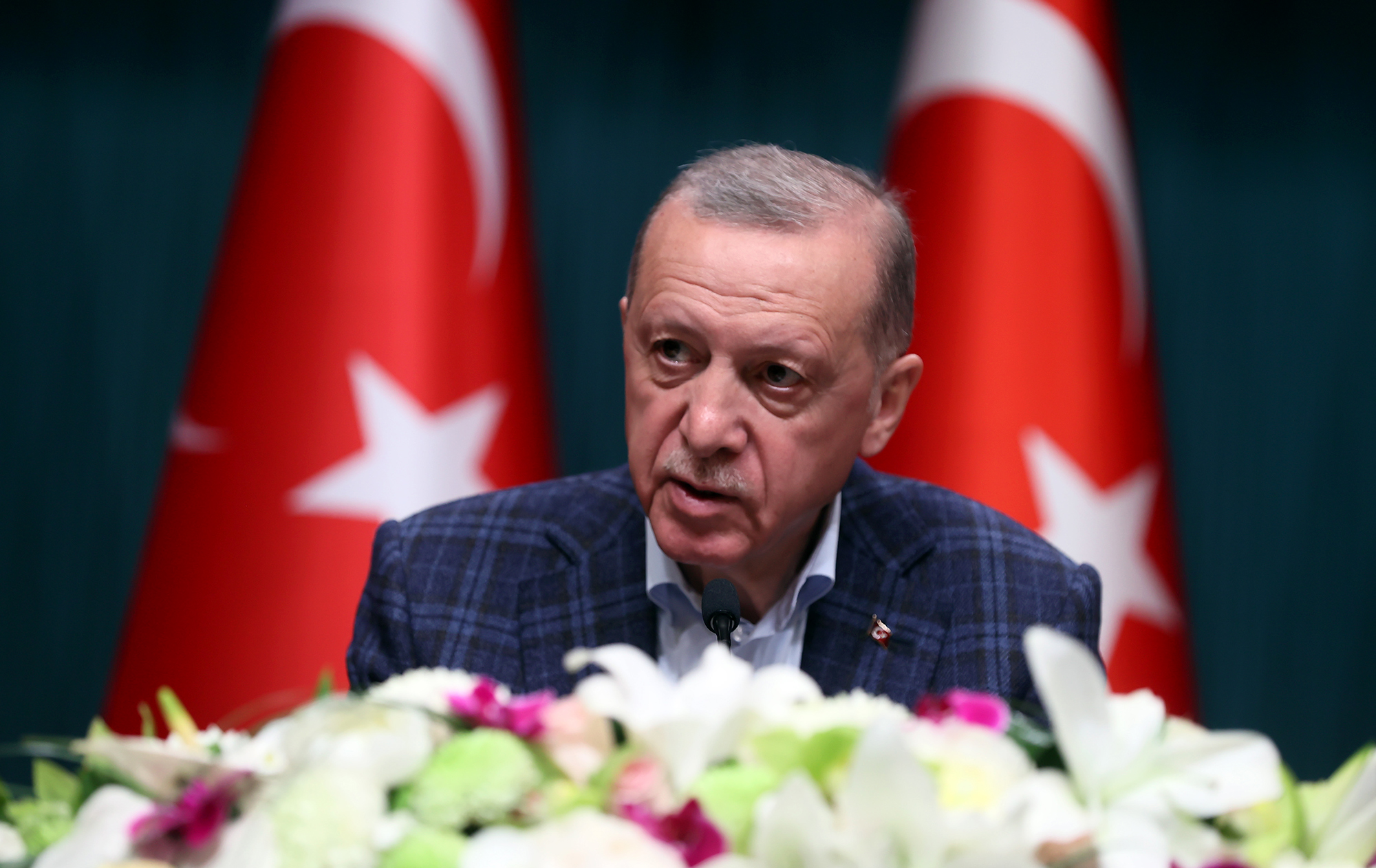
Photo: President of Türkiye Recep Tayyip Erdogan is dubbed the sole influencer of Putin (Getty Images)
Last week, Erdogan stated his interest in reviving the deal on an expanded scale. Following a phone call with the Russian President, he noted that contacts for relaunching the initiative on a broader scope were ongoing. It appears that the aim is to harness the positivity of the grain agreement as the foundation for ending hostilities between Russia and Ukraine.
"Unfortunately, the loyalty principle wasn't observed before. No diplomatic efforts were made to transform the positive atmosphere created by the Black Sea initiative into a ceasefire, and subsequently, a lasting peace," he added, clearly hinting at the UN's failure to fulfill part of its deal with Russia.
The situation could be turned around by a personal meeting between Putin and Erdogan. According to the latest information, the Russian dictator's visit to Ankara is planned in the coming days. And, as reported by Milliyet, Ankara has stepped up its diplomatic efforts in anticipation of the grain deal's revival ahead of the visit.
However, Ukraine should focus on securing alternative routes and not overly rely on Erdogan. At least not after, merely three days before Russia's move, he spoke about Putin's agreement to extend participation in the deal.

